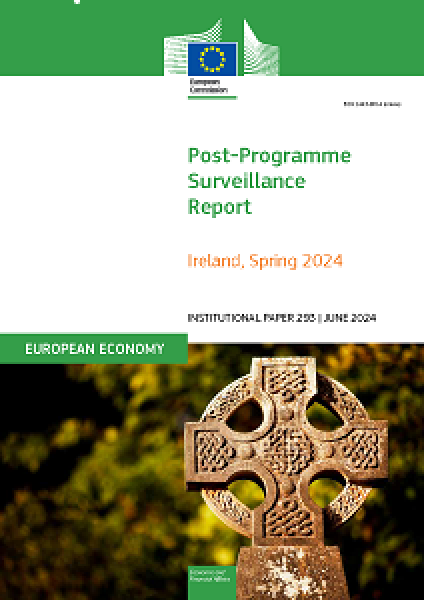Post-Programme Surveillance (PPS) is conducted by the European Commission twice per year, in collaboration with the European Central Bank (ECB) and the European Stability Mechanism (ESM). It assesses the economic and financial situation of euro area Member States that have previously received financial assistance, with the goal to ensure that these countries retain their capacity to repay the loan support.
Post-Programme Surveillance Reports

This report by the European Commission presents the findings of the 17th post-programme surveillance mission to Cyprus and identifies remaining challenges for the Cypriot economy.

This report by the European Commission presents the findings of the 21th post-programme surveillance mission to Ireland and identifies remaining challenges for the Irish economy.

This report by the European Commission presents the findings of the 22nd post-programme surveillance mission to Spain and identifies remaining challenges for the Spanish economy.

This report by the European Commission presents the findings of the 5th post-programme surveillance mission to Greece and identifies remaining challenges for the Greek economy.

This report by the European Commission presents the findings of the 20th post-programme surveillance mission to Portugal and identifies remaining challenges for the Portuguese economy.

This report by the European Commission presents the findings of the 4th post-programme surveillance mission to Greece and identifies remaining challenges.

This report by the European Commission presents the findings of the 16th post-programme surveillance mission to Cyprus and identifies remaining challenges for the Cypriot economy.

This report by the European Commission presents the findings of the 21th post-programme surveillance mission to Spain and identifies remaining challenges.

This report by the European Commission presents the findings of the 20th post-programme surveillance mission to Ireland and identifies remaining challenges.

This report by the European Commission presents the findings of the 19th post-programme surveillance mission to Portugal and identifies remaining challenges.
